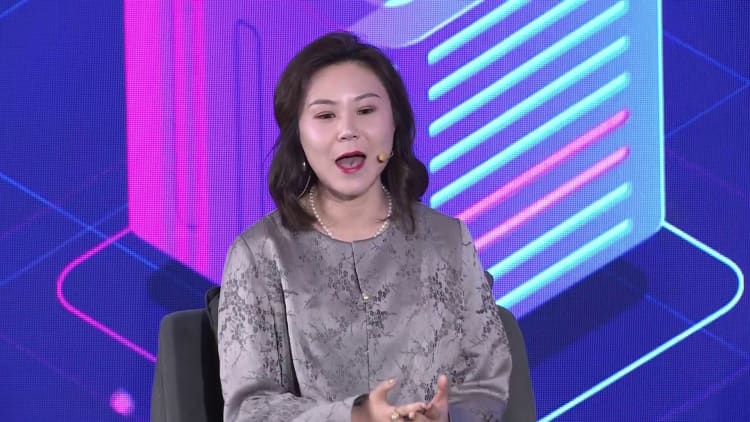
A partner at a Chinese semiconductor investment fund has welcomed the U.S. government’s ban of certain advanced chip types to be exported to China, describing the move as “great news” which may stimulate a domestic ecosystem.
Chloe Wang, a partner and vice-president at the Guangzhou-headquartered Yang Cheng Fund, said: “We received the very great news this morning, and I didn’t feel surprised about the U.S. [which] continued to ban the H100 and 800 exports to China,” Wang told CNBC’s East Tech West conference in the Nansha district of Guangzhou, China, on Wednesday.
The U.S. Department of Commerce is set to prevent the sale of some advanced artificial intelligence (AI) chips to China, it announced on Tuesday, over concerns they could be used for military development purposes. This will restrict the export of chipmaker Nvidia‘s A800 and H800 chips, officials said.
Nvidia’s H100 chip, used by AI firms in the U.S., was banned for sale in earlier U.S. government restrictions.
Wang said the fund invests in semiconductor companies, including those in the AI training and autonomous vehicle sectors. One AI chip company Yang Cheng has invested in will launch its initial public offering this year, while a Shanghai-based AI chip firm is valued at more than $3 billion, Wang added, though she didn’t name the firms.
“We believe those kind of upstream chipmakers — they will drive, or they will play the leading role in China, and they will create their own ecosystem,” Wang added. “And maybe we can, not too much rely on the Cuda system,” she said, referencing Nvidia’s AI software.
“I still feel quite confident about the Chinese entrepreneurs as well as the consumer base market,” she added.
A worker holds a circuit board.
Owngarden | Moment | Getty Images
Wang said there are around 1,500 companies in China that are involved in the design of integrated circuits (IC) and a “shortage” of companies in the AI chip training sector, with around 20 start-ups in the space.
China wants to increase its computing power by 50% by 2025, according to a plan by several Chinese ministries announced in October. Doing so is seen as a key way of developing AI, which needs advanced semiconductors to process vast amounts of data.
The U.S. government ban is designed to prevent China’s access to advanced semiconductors “because they could be used for military uses and modernization,” U.S. Commerce Secretary Gina Raimondo said on a call with reporters Tuesday. They’re not intended to hurt Chinese economic growth, U.S. officials added.
In recent months attention has turned back onto Chinese tech giant Huawei. Its latest smartphone, the Mate 60 Pro, has a chip that appears to support 5G, despite U.S. sanctions that have sought to cut the company off from the technology.
The chip, made by China’s SMIC, has sparked concern in Washington and raised questions about how it was possible. There’s also scrutiny on whether the process being used to make these new chips is efficient enough on a large scale to sustain a Huawei comeback.
CNBC’s Kif Leswing and Arjun Kharpal contributed to this report.

